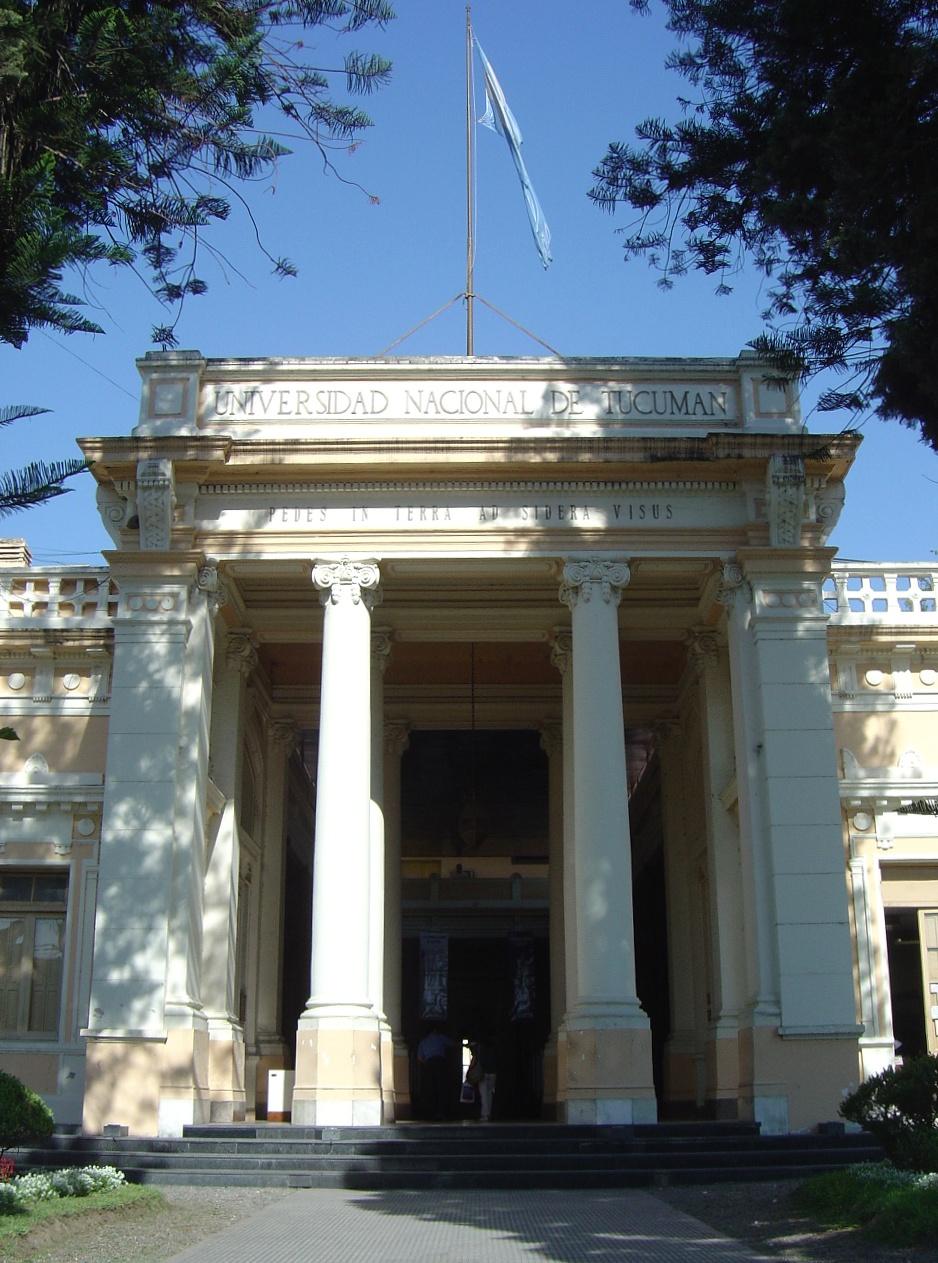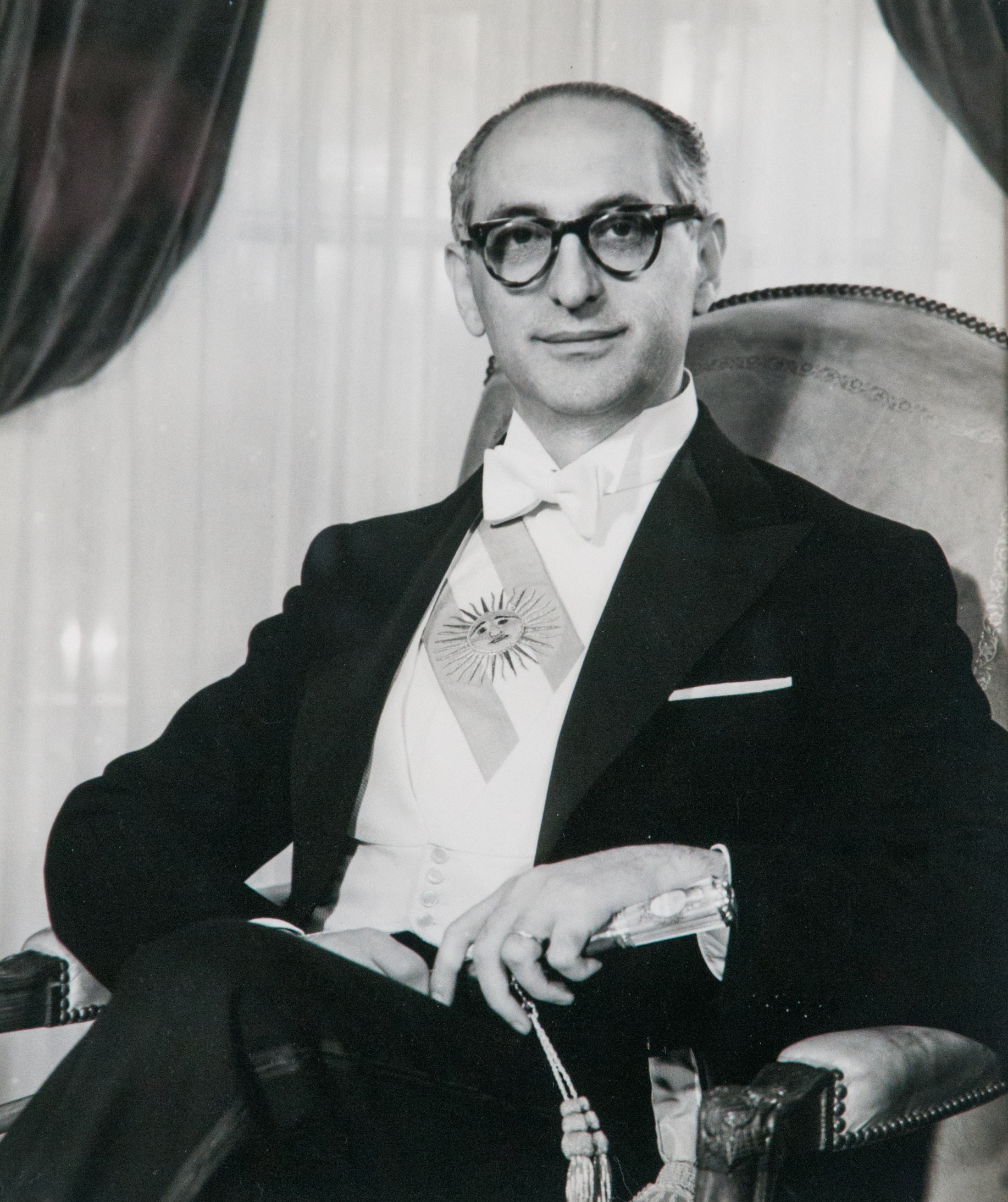Risieri Frondizi on:
[Wikipedia]
[Google]
[Amazon]
 Risieri Frondizi (1910–1983) was an Argentinian philosopher, anthropologist, and rector of the
Risieri Frondizi (1910–1983) was an Argentinian philosopher, anthropologist, and rector of the
 In 1935, Frondizi became a professor of philosophy at the National Institute of Teachers of Buenos Aires. In 1937, at the founding of
In 1935, Frondizi became a professor of philosophy at the National Institute of Teachers of Buenos Aires. In 1937, at the founding of  In 1957, Frondizi became rector of the University of Buenos Aires. He promoted the construction of the University City and research activities. He founded the School of Public Health, supported a Department of Vocational Guidance, and extended the scholarship system to students and graduates. (In 1958, his brother
In 1957, Frondizi became rector of the University of Buenos Aires. He promoted the construction of the University City and research activities. He founded the School of Public Health, supported a Department of Vocational Guidance, and extended the scholarship system to students and graduates. (In 1958, his brother
 Risieri Frondizi (1910–1983) was an Argentinian philosopher, anthropologist, and rector of the
Risieri Frondizi (1910–1983) was an Argentinian philosopher, anthropologist, and rector of the University of Buenos Aires
The University of Buenos Aires ( es, Universidad de Buenos Aires, UBA) is a public research university in Buenos Aires, Argentina. Established in 1821, it is the premier institution of higher learning in the country and one of the most prestigi ...
.
Background
Risieri Frondizi Ercoli was born on 20 November 1910 in Posadas, Argentina. His parents were Julio Frondizi and Isabel Ercoli, who had arrived in the 1890s fromGubbio
Gubbio () is an Italian town and ''comune'' in the far northeastern part of the Italian province of Perugia ( Umbria). It is located on the lowest slope of Mt. Ingino, a small mountain of the Apennines.
History
The city's origins are very ancie ...
, Umbria
it, Umbro (man) it, Umbra (woman)
, population_note =
, population_blank1_title =
, population_blank1 =
, demographics_type1 =
, demographics1_footnotes =
, demographics1_title1 =
, demographics1_info1 =
, ...
, Italy. Frondizi had seven brothers and six sisters. They included Arturo Frondizi
Arturo Frondizi Ércoli (October 28, 1908 – April 18, 1995) was an Argentine lawyer, journalist, teacher and politician, who was elected President of Argentina and ruled between May 1, 1958 and March 29, 1962, when he was overthrown by a ...
(president 1958-1962), Ricardo (English professor) and Silvio (Marxist theorist, politician, and lawyer, assassinated in 1974). Frondizi studied at Harvard University
Harvard University is a private Ivy League research university in Cambridge, Massachusetts. Founded in 1636 as Harvard College and named for its first benefactor, the Puritan clergyman John Harvard, it is the oldest institution of high ...
. In 1943, Frondizi received his MA from the University of Michigan at Ann Arbor. In 1950, he received a doctorate from the National Autonomous University of Mexico.
Career
National University of Tucumán
The National University of Tucumán ( es, Universidad Nacional de Tucumán, UNT) is an Argentine national university located in Tucumán Province and the largest in Argentina's northwest region. Founded on 25 May 1914 in San Miguel de Tucumán, ...
, Frondizi became director of the Faculty of Philosophy and Letters through 1946. For academic year 1943–1944, he interrupted his teaching there to take advantage of a scholarship to pursue postgraduate studies at the University of Michigan at Ann Arbor
, mottoeng = "Arts, Knowledge, Truth"
, former_names = Catholepistemiad, or University of Michigania (1817–1821)
, budget = $10.3 billion (2021)
, endowment = $17 billion (2021)As o ...
, where he met Roy Wood Sellars
Roy Wood Sellars (July 9, 1880, Seaforth, Ontario – September 5, 1973, Ann Arbor, Michigan) was a Canadian-born American philosopher of critical realism and religious humanism, and a proponent of naturalistic emergent evolution (which he call ...
and Dewitt Parker.
Frondizi was imprisoned , after which he accepted an invitation to teach at the Central University of Venezuela in Caracas for two academic years.
In October 1946, Frondizi was dismissed from the Argentine National University of Tucuman. In 1948, American philosophy professor Sidney Hook
Sidney Hook (December 20, 1902 – July 12, 1989) was an American philosopher of pragmatism known for his contributions to the philosophy of history, the philosophy of education, political theory, and ethics. After embracing communism in his you ...
led a unanimous resolution in his division of the American Philosophical Association
The American Philosophical Association (APA) is the main professional organization for philosophers in the United States. Founded in 1900, its mission is to promote the exchange of ideas among philosophers, to encourage creative and scholarly ...
that demanded the Republic of Argentina to uphold academic freedom and specifically supported efforts by Frondizi to uphold academic freedom.
 In 1957, Frondizi became rector of the University of Buenos Aires. He promoted the construction of the University City and research activities. He founded the School of Public Health, supported a Department of Vocational Guidance, and extended the scholarship system to students and graduates. (In 1958, his brother
In 1957, Frondizi became rector of the University of Buenos Aires. He promoted the construction of the University City and research activities. He founded the School of Public Health, supported a Department of Vocational Guidance, and extended the scholarship system to students and graduates. (In 1958, his brother Arturo Frondizi
Arturo Frondizi Ércoli (October 28, 1908 – April 18, 1995) was an Argentine lawyer, journalist, teacher and politician, who was elected President of Argentina and ruled between May 1, 1958 and March 29, 1962, when he was overthrown by a ...
became president and was overthrown in 1962 by military coup supported by future president Juan Perón
Juan Domingo Perón (, , ; 8 October 1895 – 1 July 1974) was an Argentine Army general and politician. After serving in several government positions, including Minister of Labour and Vice President of a military dictatorship, he was electe ...
.)
During another coup in June 1966 (the self-designated ''Revolución Argentina
Argentine Revolution ( es, Revolución Argentina, links=no) was the name given by its leaders to a military coup d'état which overthrew the government of Argentina in June 1966 and began a period of military dictatorship by a junta from the ...
'' (Argentine Revolution)), General Juan Carlos Onganía
Juan Carlos Onganía Carballo (; 17 March 1914 – 8 June 1995) was President of Argentina from 29 June 1966 to 8 June 1970. He rose to power as dictator after toppling the president Arturo Illia in a coup d'état self-named ''Revolución Arge ...
became ''de facto'' president, supported by several leaders of the General Confederation of Labour (CGT), among these the general secretary, Augusto Vandor
Augusto Timoteo Vandor (1923–1969) was an Argentine trade unionist leader, naval non-commissioned officer and politician.
Career
Vandor was born in Bovril, Entre Ríos Province, to a Dutch father and a French mother, in 1923. He enlisted in ...
. This led to a series of military-appointed presidents. In July 1966 Onganía ordered the forcible clearing of five facilities of the University of Buenos Aires
The University of Buenos Aires ( es, Universidad de Buenos Aires, UBA) is a public research university in Buenos Aires, Argentina. Established in 1821, it is the premier institution of higher learning in the country and one of the most prestigi ...
(UBA) on July 29, 1966 by the Federal Police
A law enforcement agency (LEA) is any government agency responsible for the enforcement of the laws.
Jurisdiction
LEAs which have their ability to apply their powers restricted in some way are said to operate within a jurisdiction.
LEAs ...
, an event known as ''La Noche de los Bastones Largos
La Noche de los Bastones Largos ("The Night of the Long Batons") was the violent dislodging of students and teachers from five academic faculties of the University of Buenos Aires (UBA), by the Federal Argentine Police, on July 29, 1966. The ac ...
'' ("The Night of the Long Batons"). These facilities had been occupied by students, professors and graduates (members of the autonomous government of the university) who opposed the military government's intervention in the universities and revocation of the 1918 university reform
The Argentine university reform of 1918 was a general modernization of the universities, especially tending towards democratization, brought about by student activism during the presidency of Hipolito Yrigoyen, the first democratic government. Th ...
. The university repression led to the exile of 301 university professors, including Manuel Sadosky
Manuel Sadosky (April 13, 1914 – June 18, 2005) was an Argentine mathematician, civil servant and author who was born in Buenos Aires to Jewish Russian immigrants who had fled the pogroms in Europe.Jacovkis, Pablo (2015). "MANUEL SADOSKY Y ...
, Tulio Halperín Donghi
Tulio Halperin Donghi (October 27, 1926 – November 14, 2014) was an Argentine historian. After earning a Ph.D in history and a law degree at the University of Buenos Aires, he taught at the institution's Faculty of Arts from 1955 to 1966. Halperi ...
, Sergio Bagú Sergio Bagú (January 10, 1911 – December 2, 2002) was an Argentinian Marxist historian, sociologist and political philosopher.
Bagú, who was born in Buenos Aires, was a lecturer at the University of Illinois, Middlebury College and the Univ ...
, and Risieri Frondizi.Marta Slemenson et al., ''Emigración de científicos argentinos. Organización de un éxodo a América Latina ''(?, Buenos Aires, 1970:118)
In later years, Frondizi taught at the University of Pennsylvania, Yale University, the University of Puerto Rico, the University of Southern Illinois at Carbondale, the University of Texas at Austin, UCLA, Carleton College, and Baylor University.
Personal life and death
Frondizi served as president for the Union of Latin American Universities as well as the Latin American society of Philosophy. He was a member of the International Institute of Philosophy in Paris. Frondizi died aged 72 on 23 February 1983 at a hospital in Waco, Texas, of a heart attack, while teaching at Baylor.Works
Frondizi published 15 books and more than 100 articles, including: * ''El punto de partida del filosofar'' (''The starting point of the philosopher'') (1945) * ''¿Qué son los valores?'' (''What are values?'') (1958) * ''Hacia la universidad nueva'' (''Towards the new university'') (1958) * ''La universidad y sus misiones'' (''The university and its missions'') (1959) * ''La Universidad en un mundo de tensiones. Misión de las Universidades en América Latina '' (''The University in a world of tensions: Mission of the Universities in Latin America'') (1971) * ''Introducción a los problemas fundamentales del hombre'' (''Introduction to the fundamental problems of man'') (1977) * ''Descartes'' (1991)See also
*List of Argentine philosophers
A list of notable Argentine philosophers:
{{compact TOC
A
* Tomás Abraham
* Coriolano Alberini
* Alberto Buela
* Agustín Álvarez
B
* Alberto Baldrich
* Jaime Barylko
* Mario Bunge
C
* Samuel Cabanchik
* Ángel Cappelletti
* Adolfo Carp ...
* Arturo Frondizi
Arturo Frondizi Ércoli (October 28, 1908 – April 18, 1995) was an Argentine lawyer, journalist, teacher and politician, who was elected President of Argentina and ruled between May 1, 1958 and March 29, 1962, when he was overthrown by a ...
* Silvio Frondizi
Silvio Frondizi (January 19, 1907 — September 27, 1974) was an Argentine intellectual and lawyer, brother of President Arturo Frondizi and of the philosopher Risieri Frondizi. He became active in leftist groups, and was assassinated in 197 ...
References
{{DEFAULTSORT:Frondizi, Risieri 1910 births 1983 deaths University of Buenos Aires faculty Rectors of the University of Buenos Aires 20th-century Argentine philosophers